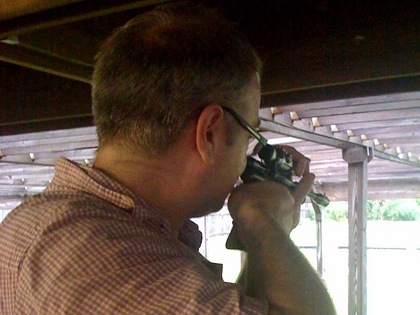I consider myself a committed federalist. To many people today, that means you favor state power at the expense of federal power. That is usually true. But a true federalist believes in a balance of state and federal power, as established in our Constitution. We can argue about whether Congress’ interstate commerce powers extend to this or that, or whether Congress really has a general spending power, but since the Fourteenth Amendment was passed in 1868, Congress’ has been empowered to protect the constitutional rights of its citizens. It has exercised this power more than a few times, first in the Civil Rights Acts of 1866, then 1871, 1875, 1957, 1960, and finally 1964, the former three establishing civil rights for freed slaves, and the latter three aimed at ending racial segregation in the South. Protecting the rights of Americans against state abuses is one of the most important powers delegated by the Constitution to Congress, and it is with this in mind that I decided to support the Thune Amendment to force reciprocity on the states.
I’m generally not all that receptive to arguments based on what Congress might do. Congress might turn around and ban guns entirely tomorrow. It could attempt to impose restrictions on concealed carry between states right now if it wanted to. Crippling ourselves over what Congress might do in the future seems foolish to me. But putting that aside, here’s why I think Congress needs to be involved in this area.
The Supreme Court is going to decide very soon whether or not the Second Amendment applies to the states through the Fourteenth Amendment. While the Court has placed limits on how Congress may exercise it’s Section 5 powers under the fourteenth amendment, there’s nothing prohibiting Congress from assuming incorporation is already fact, and exercising its powers along the lines outlined in the Heller decision, which said the Second Amendment “guarantee[s] the individual right to possess and carry weapons in case of confrontation.” In fact, having Congress do so may actually help the case for incorporation, as the Court may prove to be reluctant to second guess Congress. More importantly, it would serve as encouragement for the federal courts, which tend to be more deferential to Congressional authority than they probably ought to be, to take a more active and less cautious role in protecting the Second Amendment rights of the citizenry. Consider that once the federal courts begin to establish the scope of the Second Amendment right under the Fourteenth Amendment, Congress will no longer be able to have influence over its scope. I think it might be beneficial over the long run to have Congress, which we have much more influence over than the courts, to charge in and lead the way.
I also believe that Congressional intervention may be the only way the citizens of New York, California, New Jersey, and all the other restrictive states might ever get their gun rights back. Consider New Jersey, for instance. Take any one law in New Jersey, and held out on its own it might seem reasonable, and might even be upheld in Court. The problem with New Jersey is largely that it’s gun laws, taken as a whole, are intended entirely and solely to discourage law abiding people from exercising their rights, and to put those who dare at grave legal risk of walking outside of one of the exemptions and becoming a felon. The only entity that can fix this whole body of law quickly is Congress, through the exercise of its Section 5 power under the Fourteenth Amendment. Sure, there’s nothing to prevent the Court from coming in later and saying Congress got it wrong, but at least it puts the Court in the position of having to go against the will of Congress, which it might be reluctant to do.
While I understand that there’s a risk to setting a precident for Congress meddling with right-to-carry, and I am sure to receive endless barrages of “I told you so” should federal licensing standards ever come to pass, I think having Congress begin taking on its role under the Fourteenth Amendment is a smart strategic move. We have considerably more influence over the lawmaking process than we do over the courts. We need a strong three branch strategy toward realizing a positive outcome for the Second Amendment rights of all Americans, whether Californian or Texan, New Jerseyan or Oklahoman, Montanan or Bay Stater. Congressional intervention under Section 5 of the Fourteenth Amendment is an important component of that.

